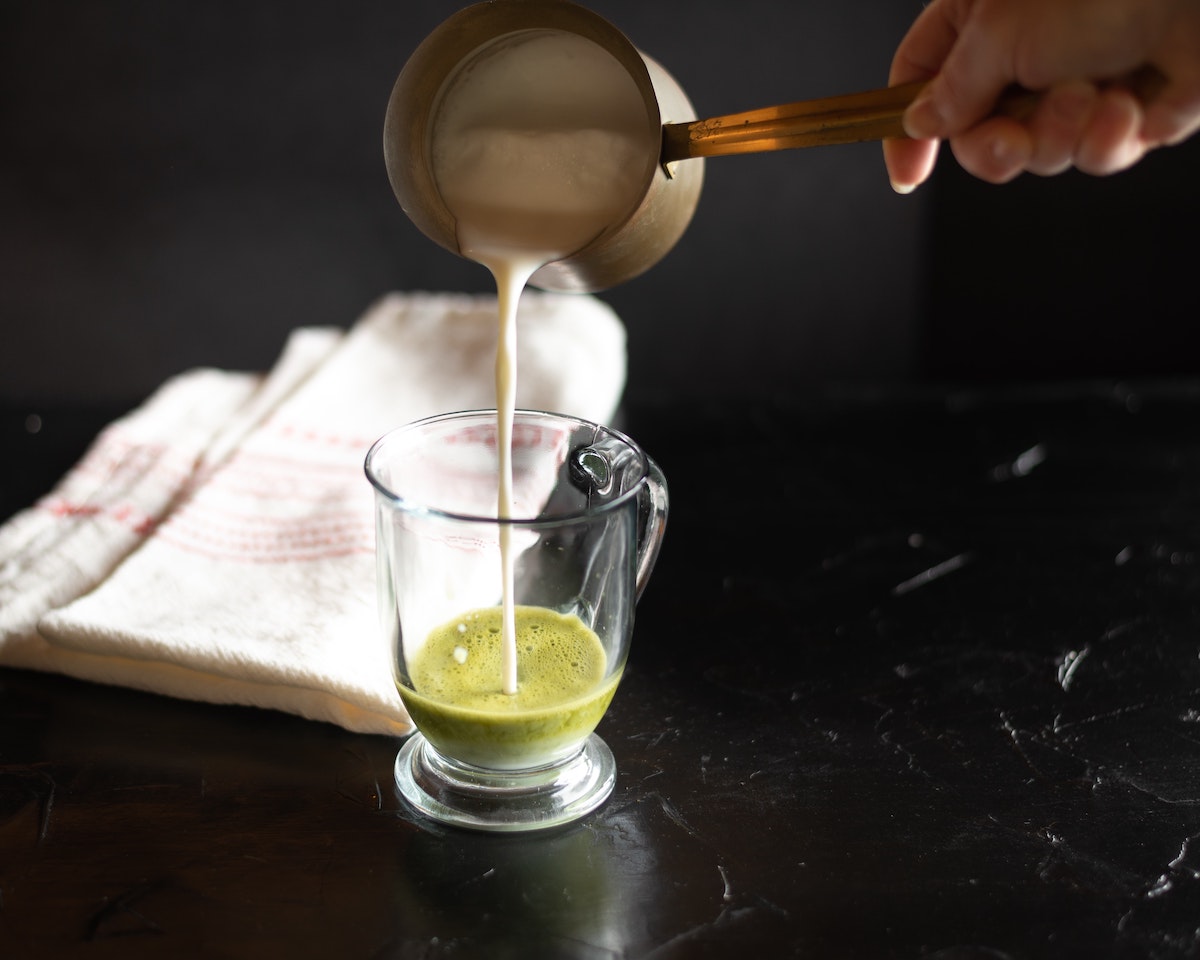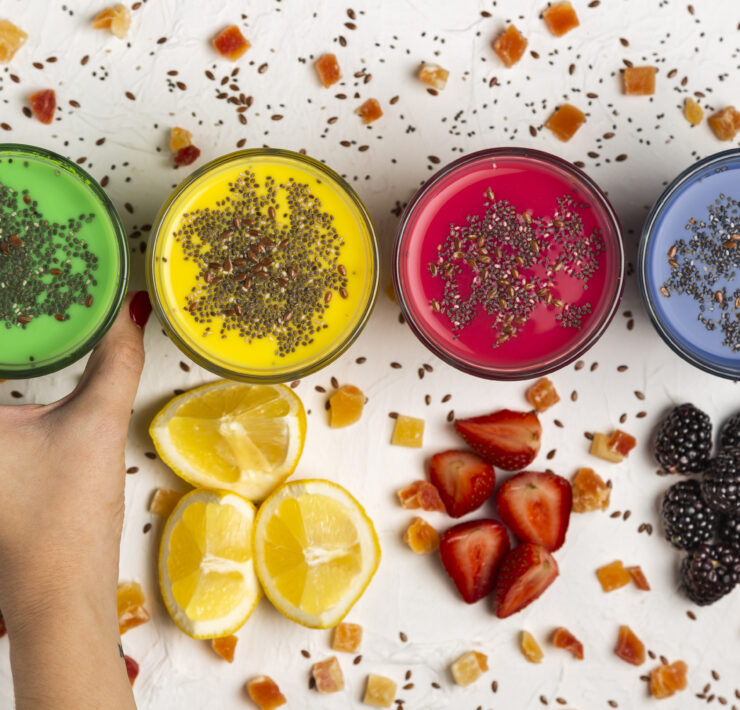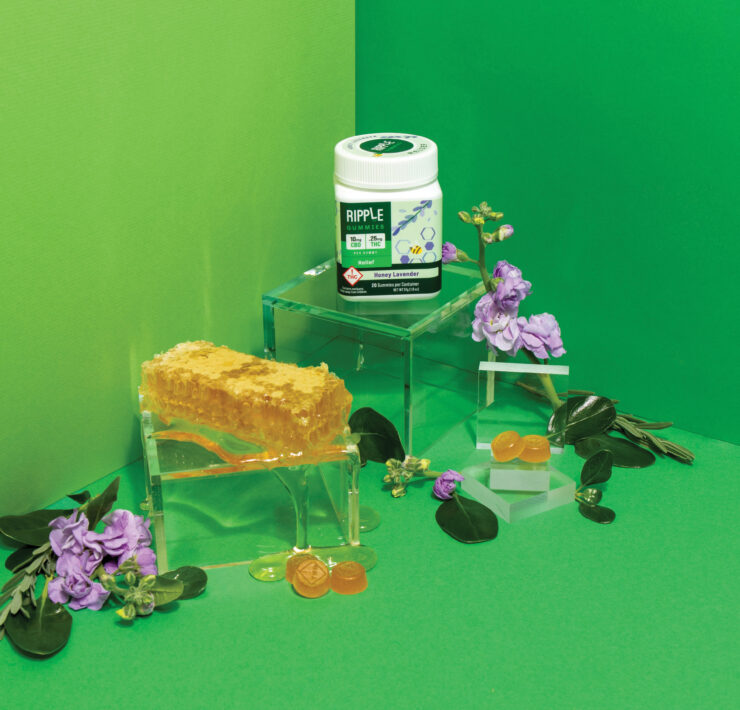Spilling the Tea on 2022 Food Trends

Every year, a flurry of the “hottest and healthiest” foods storm our social media accounts, end caps at grocery stores, and conversations with friends at our local bar. We feel like we hit the jackpot of nutrition information—“Here is this amazing food we recently discovered that can do these things we feel we are missing out on,” we think. Like any kind of fake news, misinformation travels at a speed much faster than facts. It is most entertaining and entrancing to learn about a new and exciting piece of information, regardless of the science behind it. But when it comes to nutrition, it really is all about the science. With any compound that can generate a benefit, evidence is needed to prove that the food can actually perform the claims that promote it.
We’ve compiled a list of the hottest food trends for this year, as determined by extensive market research and chats with experts in the field. Let’s take a deeper dive into these trends and see how much of the claims are true while weeding out the propaganda.
Superfood Coffee
Need a way to get in nutrition, but hate eating? New supplement brands are popping up touting antioxidant and probiotic blends meant to be mixed into your favorite coffee drink. Naturally, the health benefit claims are extensive, ranging from disease prevention to helping to reduce inflammation and even depression. The fact is, there is absolutely nothing special about the ingredients within these blends. The components of these blends are nothing more than supplements found in your local pharmacy, spices found in your grocery store, and herbal remedies that offer no known substantial benefit whatsoever. For a quick, on-the-go nutrient boost, make a smoothie at home using frozen fruits, vegetables, protein powder, and an unsweetened fluid (like oat milk or water).
Matcha
Matcha is a powder form of green tea leaves that are plucked at an early age and instantly turned into powder form. The claim in doing so is that all of the antioxidants and polyphenols (compounds found in plants that have a health benefit) are retained in the powder that would otherwise be lost during the brewing process. Though there’s not a lot of truth that hot water destroys these healthful compounds, there is a ton of research to show how beneficial green tea is in strengthening the immune system and controlling inflammation that can cause a host of other diseases. When drinking green tea for its many benefits, it doesn’t have to be matcha specifically. However, including matcha certainly does more good than harm.
Turmeric
Though it may not sound like a “hot new food trend,” turmeric will make the spotlight this year. Turmeric is a spice within the curcumin family and has been well-established to offer a variety of benefits, from reducing inflammation to decreasing risk of pancreatic and colon cancers. It should be noted, though, that if someone already has these cancers, turmeric will not offer a risk benefit. Turmeric’s benefits lie only in prevention and risk reduction; it is not meant to be a substitute for medical therapies. A little goes a long way in terms of offering color and flavor, and the dose response to achieve the benefits of turmeric is only about a half of a teaspoon. So, go for it!
Mankai
Mankai is a tiny green that is claimed to be a complete plant-based protein (three ounces is about five grams protein, compared to a half cup of beans, which has eight grams) and offers a range of nutrients such as vitamin B12, iron, folate, and choline (which is good for brain health). These tiny greens are not sold as greens, usually, but as powders and frozen cubes. None of these claims are false, but adding mankai to your diet shouldn’t replace anything. There are a ton of plant-based proteins out there (beans, lentils, tofu, seitan, just to name a few), and many vegetables and leafy greens have a similar nutrient profile. If using it makes you feel better, there is certainly nothing wrong with including this product as part of an already nutrient-rich eating plan.
Hemp Seeds
These nutrient-dense seeds are rich in protein (nine grams of protein in about three tablespoons), fiber, and healthy fats (such as omega 3). Proponents of hemp seeds tout them as being a good source of vitamin E, potassium, B vitamins, iron, and magnesium. These claims are all true, and consuming hemp seeds can offer some anti-inflammatory benefits as well as helping to lubricate joints. Hemp seeds can be used as a plant-based protein or as a nutritious add-on to a salad or smoothie.
Home-Fermented Foods
This trend has been going on for some time and is only increasing in popularity. While some may worry that home fermentation may be creating a petri dish of unknown and dangerous bacterial growth, food scientists and safety experts say properly fermented veggies are just fine. The development of lactic acid during this process nearly obliterates all pathogenic bacteria which can cause food illness.
Properly fermenting a vegetable is as easy as applying basic food safety principles—using washed vegetables, sanitized surfaces, and clean equipment. Cabbage, daikon radishes, turnips, parsnips, cucumbers, okra, string beans, and green tomatoes are all good candidates for fermentation, but you can really go wild with the options. Salt is also an essential ingredient, and it all depends on the concentration of salt in the liquid, so follow a tried and true recipe. Fermented vegetables with 1 to 2% salt by volume should keep well for at least four to nine months under refrigeration. A 2% salted version should keep well in a dark, cool area such as a root cellar for at least three months.
Probiotics for Mood
Expect to see probiotics in everything, say food experts. With emerging research connecting gut health to mood, food companies are going to make every health claim they can about their products. Generally speaking, the foods we eat can directly affect the bacterial community in the gut, known as the microbiome, in terms of both diversity and number. The more diverse the microbiome, the healthier the gut.
The microbiome plays a huge role in managing the neurotransmitters, peptides, and compounds released from the gut. The neurotransmitter serotonin, for example, plays a key role both in the gut and in the brain, but most of the research in the realm of the gut/brain connection has not been proven in humans. No one food, vitamin, mineral, or supplement should be considered a treatment for depression or other mental health issues. There is no information to suggest that nutrition alone can be a replacement for prescription management or counseling. Though probiotic supplements may benefit the microbiome, eating a plant-based diet that focuses on higher fiber foods (fruits, vegetables, whole grains, legumes) shows the most promise at this point.
There are no yet-to-be discovered ingredients that will make it easy to get all the nutrients we need to thrive. Food trends come and go, whether or not they carry misleading claims. There is usually no harm done with including some new foods into your already nutritious lifestyle. The aim, however, is to remember that a balanced diet can’t be replaced with any single food.










